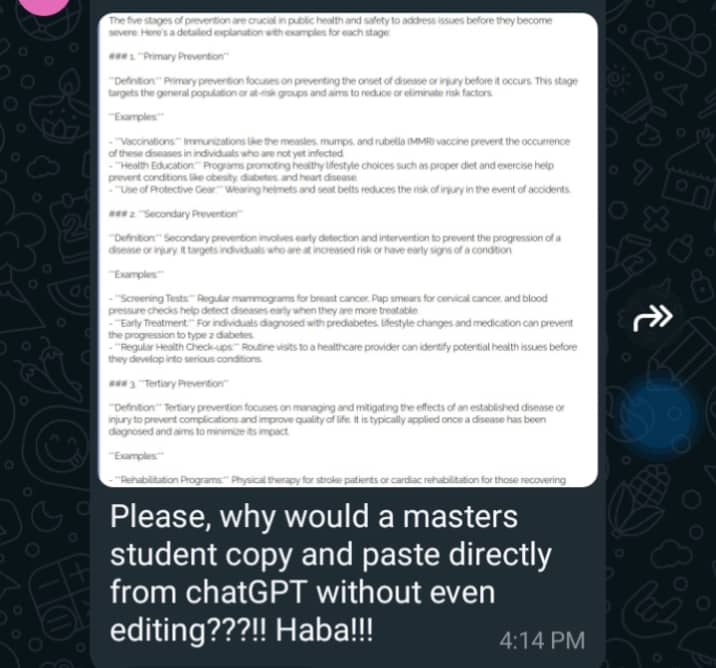
The mathematics course is a perfect example where the answer alone does not justify the grades but heavily lies on the method applied to reach the answer, and this is where the fear of theory comes to play, bringing about variations in marks awarded for the same questions even when the students claim to have answered correctly. Crude method but effective; you will agree with me. So, most of us in the age bracket of twenty and forty years were exposed to the rigors of seemingly crude but effective academic assessments.
The last decade, but specifically the past five years, has witnessed a surge in the use of assisted technology in various ramifications, including the educational sector, to propagate the study path for students and tutors. The advent of artificial intelligence, or chat-gtp, has brought a new dimension into the field of study, mostly by providing ease and simplicity to the acquisition of knowledge, and the big question is, would man be more reliant on such assisted technology as an advantage or is its use such that it is drawing back the true acquisition of knowledge?

SCREENSHOT IMAGE IS MINE
Here is a typical example of an individual who submitted an assignment verbatim without applying any editing and is the epitome of plagiarism. The lecturer was compelled out of disappointment to publicly disclose his displeasure about the submitted assignment. The modality applied in submitting the assignment was totally wrong, as it was evident the student gained little or nothing from the assignment. Thus, if you consider being smart refers to the use of smart gadgets to answer questions in the examination hall, you will agree with me that there would be no knowledge impartation on the part of the student while the lecturer enjoys no spice or variability in answers to be provided by the student. How frustrating for the lecturer will it be if all students drop the same response for a single question? It would be as good as awarding the same marks for work done or asking them not to do anything since the responses would be the same. However, we have the category of people who would still fail despite having live questions and live answers.
Would anyone be comfortable if a managing physician has to consult the artificial intelligence or chat-gtp to get a diagnosis or institute a treatment? The confidence level we would have in such treatment would likely be lowered.
Though we are in a digital and smart age, there are some compromises that should not be tolerated, as it would further negatively impart not just the individual but the overall outlook of society.
Thank you for reading. I would love to have your comments and contributions.
Posted Using InLeo Alpha